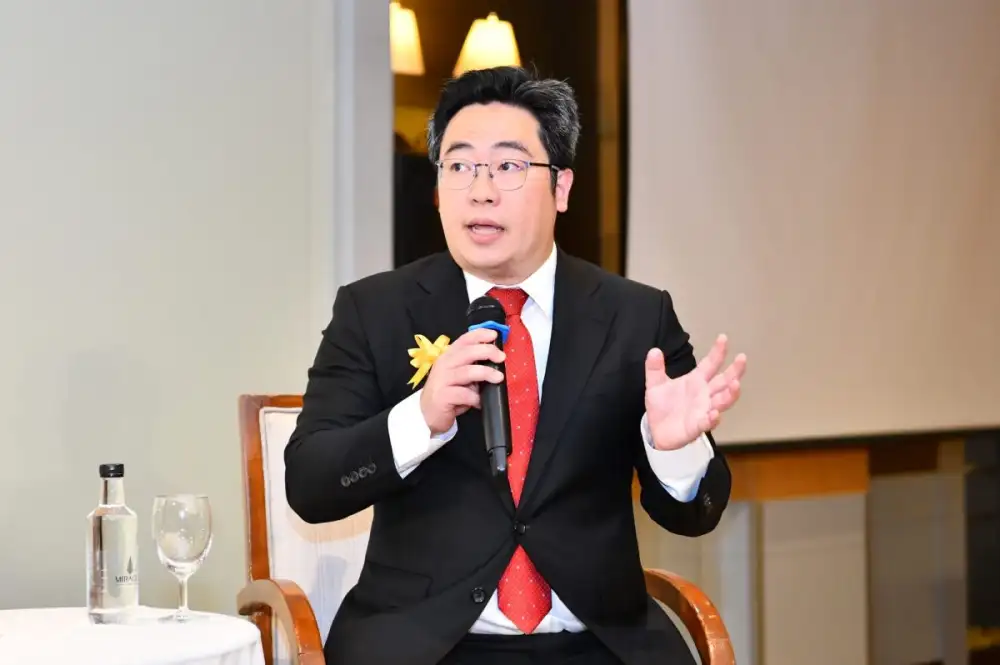
Powering up Thailand's goal to achieve Net Zero Greenhouse Emissions by 2065
As the world is heading into an era of 'Energy Disruption', we are entering a critical transitional period in which governments globally are trying their best to seek new alternative energy sources to replace fossil fuels that will be depleted soon. Eventually, the effort will propel us into a sustainable energy era.
In support of Thailand's movement towards the Energy Disruption era, the country requires a more practical approach to empower its 'Smart Grid' action plan. Nationally, Thailand aims to reach carbon neutrality by 2050 and achieve net-zero greenhouse emissions by 2065. Thailand's electrical grid was originally designed and managed as a one-way flow of power, in which electrical power is sent from large power plants to consumers across the country, while consumers had a limited role in producing electricity, and there were low rates of data exchange between appliances. A Smart Grid will become the innovative key to enhancing Thailand's power grid so that it can be paired with other cutting-edge monitoring, processing, automating and communication applications. More importantly, the grid and its information can become a two-way flow. This enables it to supply more renewable energy from new sources and accommodate the ever-increasing deployment of electric vehicles. A Smart Grid will also enable users, including both business operators and general consumers, to efficiently manage their electricity consumption to suit their daily lifestyle and energy needs.
During the seminar on Thailand's action plan for a Smart Grid in the Energy Disruption era, Dr. Suthee Traivivatana, Strategic Officer of Huawei Thailand's Digital Power Business Group, showed his vision towards Thailand's Smart Grid and Digital Power, and emphasized four strategies to unlock the country's potential for moving towards a sustainable energy era.
Three key pillars for Thailand's Smart Grid Development
Dr. Suthee also highlighted Huawei's commitment to support Thailand's development of its Smart Grid: "Huawei is a leading global provider of digital power technology. We have a variety of products and solutions, which are currently deployed in more than 170 countries. Our digital power business has been growing steadily in recent years. As Thailand is one of our key markets, we have increased our investment in digital business here to support Thai businesses and the public sector. In order to lay a strong foundation for Smart Grid development in Thailand, there are three core pillars to consider as follows:
Empowering 'Energy as a Service' Solutions to become a reality in Thailand
Additionally, Dr. Suthee emphasized Huawei's mission to reinforce a 'Energy as a Service' approach in Thailand: "With our commitment to 'Grow in Thailand, Contribute to Thailand', Huawei has been working closely with the Thai government to set up the Smart Grid in the country, in line with the Thailand Smart Grid Master Plan. Propelled by Huawei's cutting-edge infrastructure, including solar panel solutions and ICT networks, this enables connection and data exchange, empowering the development of Smart Grids and laying a strong foundation for sustainable digital power and business digitization. Huawei has provided digital power solutions to more than 1,000 businesses and enterprises in Thailand. Many organizations have selected Huawei as their digital power partner, optimizing their digital power business and creating more than 1,000 new jobs in Thailand."
Regarding Huawei's potential for digital power business, Dr. Suthee added: "When Thailand has a secure and reliable Smart Grid, which can be upgraded to a 'Energy as a Service' model in the future, Thai businesses will be able to access electricity without upfront payment. Maintenance, operational and service costs will also be reduced. Furthermore, we will have more flexibility in energy sources while at the same time energy risks are more manageable. This, in turn, will bring equal access to electricity, in which businesses of all sizes as well as domestic consumers will have access to electricity at affordable prices. Most importantly, everyone can have access to infrastructure and energy with no one being left behind. This will, in turn, fully support Thailand's goals to achieve carbon neutrality by 2050 and net-zero greenhouse emissions by 2065.